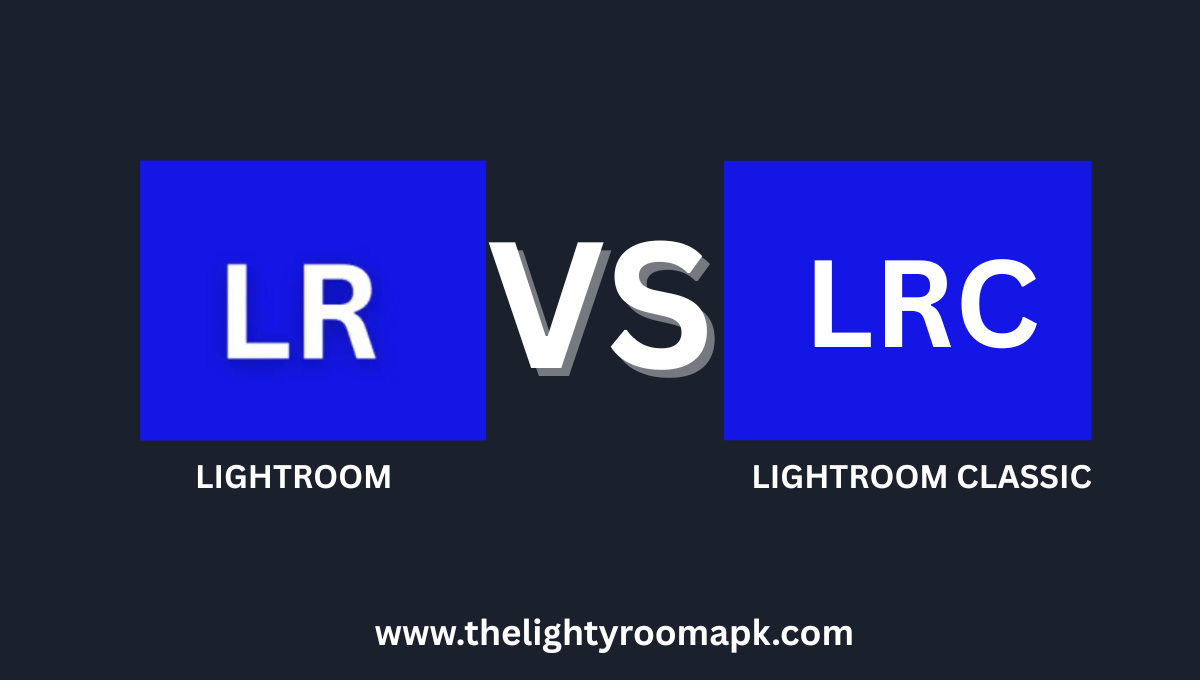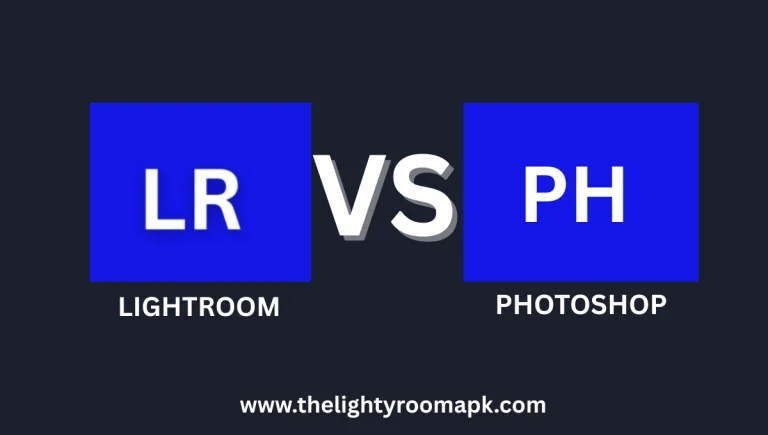Lightroom VS Lightroom Classic: Which One Is Best in 2025?
Many users face confusion when selecting between Adobe Lightroom and Lightroom Classic, wondering which is best. Adobe Photoshop was introduced in 2007 by Adobe. Lightroom CC (Creative Cloud) is cloud-based, allowing users to store and access their photos online from any device. On the other hand, Lightroom Classic is desktop-based and stores files locally, which is better for working offline with full control over storage and file management. This article is about helping you choose which version is best for your editing needs by comparing Lightroom and Lightroom Classic in detail.
What’s Adobe Lightroom / Lightroom CC
The other name of Adobe Lightroom is Lightroom CC. It is a cloud-based editing app generated for easy access on Mac, iPhone, and iOS devices. Its interface is simple; it provides fewer tools as compared to Lightroom Classic. Lightroom is a powerful editing application. It includes different editing options to improve your digital images. This wonderful version is very simple and improves user performance. This feature allows users to save their files due to the automated feature and the ability to take photos more easily. While mobile editing is convenient, the desktop version offers more control; explore it here: Lightroom for PC.
What’s Adobe Lightroom Classic?
Adobe Lightroom Classic is a powerful desktop-based photo editing application designed for high-quality RAW image editing and advanced organization. It is specially created for desktop users, allowing them to use its features for free. Unlike other versions, it stores your photos directly on the hard drive and is available only on PC or desktop, making it ideal for professionals who prefer working offline. The Classic version has the most advanced editing feature. Users can edit their videos or photos online or offline, but they cannot do their work on mobile or tablet. While the latest Lightroom offers new tools, many users still love the older versions. Explore them all in our guide on Lightroom Old Version.
Lightroom vs Lightroom Classic: Key Differences
User Interface and Workflow
Lightroom
Lightroom CC provides a modern interface. It’s simple to use and offers a user-friendly interface, and it’s best for beginners, those new to editing.
Lightroom Classic
Lightroom Classic has a more complex interface. It consists of multiple editing tools in the develop module, color grading, tone curve, calibration, effects, lens correction, and HSL/color.
Cloud Storage
Lightroom
Lightroom CC stands out for its seamless Creative Cloud integration, allowing you to store and access your images across different devices easily. Whether you’re using a mobile, tablet, or desktop, you can edit anytime, anywhere.
Lightroom Classic
“Lightroom Classic doesn’t offer cloud storage. Your photos are saved directly to your computer. It uses a catalog system to organize your images and works easily even with a slow internet connection. However, one issue is that if you don’t back up your files continuously, you can lose your data.”
Image organization
Lightroom
Lightroom uses Adobe Sensei AI to quickly find objects in your photos. It also has smart face recognition and keyword tagging, so you can easily search your image without wasting any time.
Lightroom Classic
Lightroom Classic doesn’t include AI features like the cloud-based system, since it stores your photos locally. This means image organization isn’t as smart or automatic, and you’ll need to search for photos manually.
Importing and Exporting
Lightroom
Lightroom offers a simpler, cloud-based workflow. It has fewer export settings than Lightroom Classic, and it allows quick searching using keyword tags and AI-powered organization.
Lightroom Classic
In Lightroom Classic, you import photos to local storage, manage them into folders, apply presets, and have multiple export options.
Editing Tools and Features
Lightroom
Lightroom provides important editing tools like local adjustments, HSL/color grading, tone curves, and AI features. It does not offer the latest modules, like Print, Web, or Slideshow.
Lightroom Classic
Lightroom Classic has advanced editing tools, such as tethered capture, noise reduction, local adjustment presets, and full support for third-party plugins. “Want to know which editor gives the best results? Read our guide on Lightroom vs Photoshop to find out!”
Comparison of Lightroom vs Lightroom Classic
| Feature | Lightroom Classic | Lightroom |
| Backup | Manual backup need | Cloud backup |
| Target User | Professional photographers, advanced users | Casual to intermediate users |
| Importing | More control over import settings | Simplified import options |
| Syncing | No automatic cloud syncing | Automatically syncs photos and edits across devices |
| Editing Tools | More advanced editing options | basic to intermediate tools |
| Photo Organization | Folder-based manual organization | Auto-organized using Adobe Sensei AI |
| Interface | More complex with many advanced features | Easy, more streamlined interface |
| Performance | Optimized for desktop, generally faster | Slower for high-res photos due to cloud sync |
Pros
Cons
Frequently Asked Questions
Conclusion
Lightroom and Lightroom Classic are powerful photo editing tools. Lightroom is best for editing for those who value convenience, cloud storage, and access to multiple devices. while Lightroom Classic is ideal for professionals who need full control and offline access. Both are best; it depends on your editing task. Personally, I use Lightroom for each editing task and rely on Classic when I need more precision; it works well for most users looking to enhance their editing skills.


